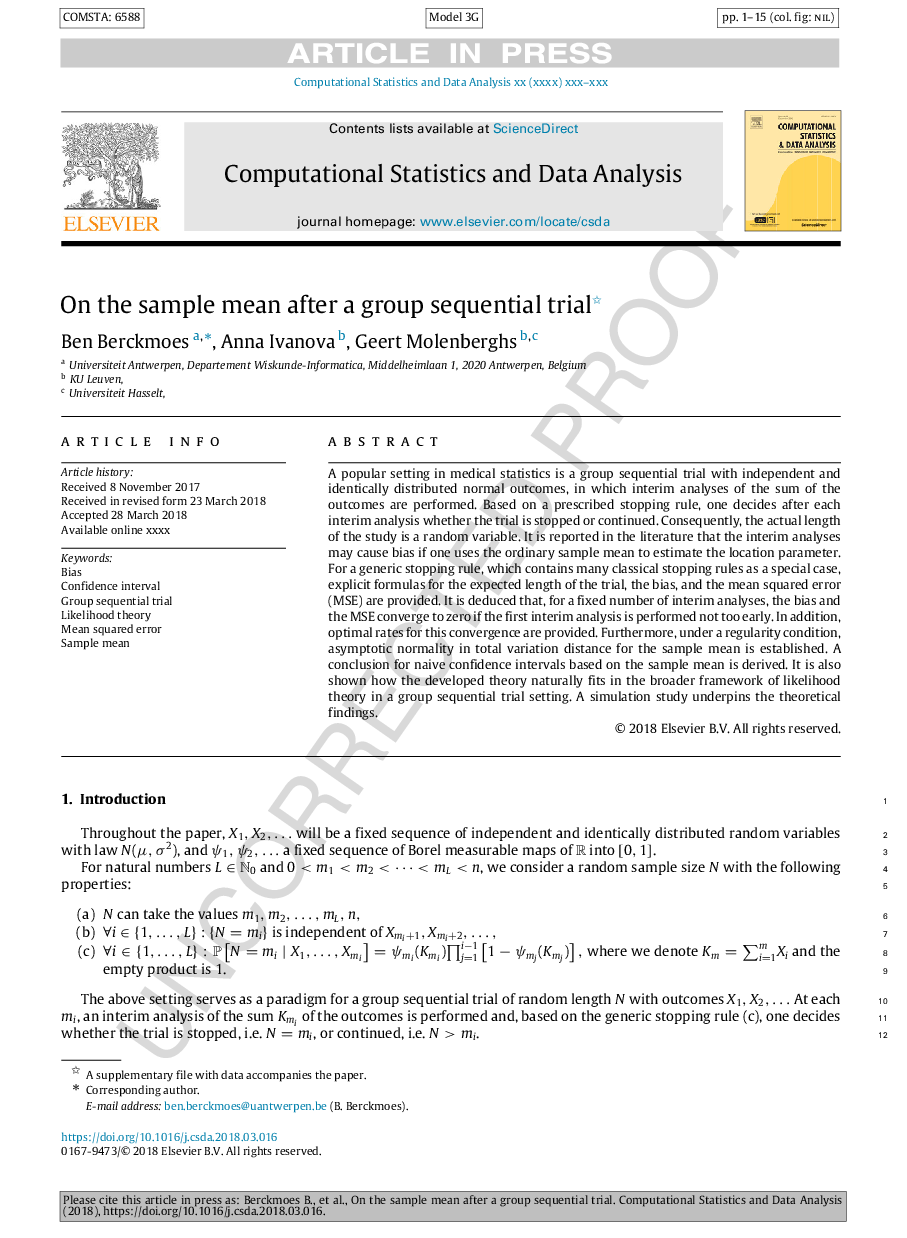| Article ID | Journal | Published Year | Pages | File Type |
|---|---|---|---|---|
| 6868672 | Computational Statistics & Data Analysis | 2018 | 15 Pages |
Abstract
A popular setting in medical statistics is a group sequential trial with independent and identically distributed normal outcomes, in which interim analyses of the sum of the outcomes are performed. Based on a prescribed stopping rule, one decides after each interim analysis whether the trial is stopped or continued. Consequently, the actual length of the study is a random variable. It is reported in the literature that the interim analyses may cause bias if one uses the ordinary sample mean to estimate the location parameter. For a generic stopping rule, which contains many classical stopping rules as a special case, explicit formulas for the expected length of the trial, the bias, and the mean squared error (MSE) are provided. It is deduced that, for a fixed number of interim analyses, the bias and the MSE converge to zero if the first interim analysis is performed not too early. In addition, optimal rates for this convergence are provided. Furthermore, under a regularity condition, asymptotic normality in total variation distance for the sample mean is established. A conclusion for naive confidence intervals based on the sample mean is derived. It is also shown how the developed theory naturally fits in the broader framework of likelihood theory in a group sequential trial setting. A simulation study underpins the theoretical findings.
Related Topics
Physical Sciences and Engineering
Computer Science
Computational Theory and Mathematics
Authors
Ben Berckmoes, Anna Ivanova, Geert Molenberghs,
